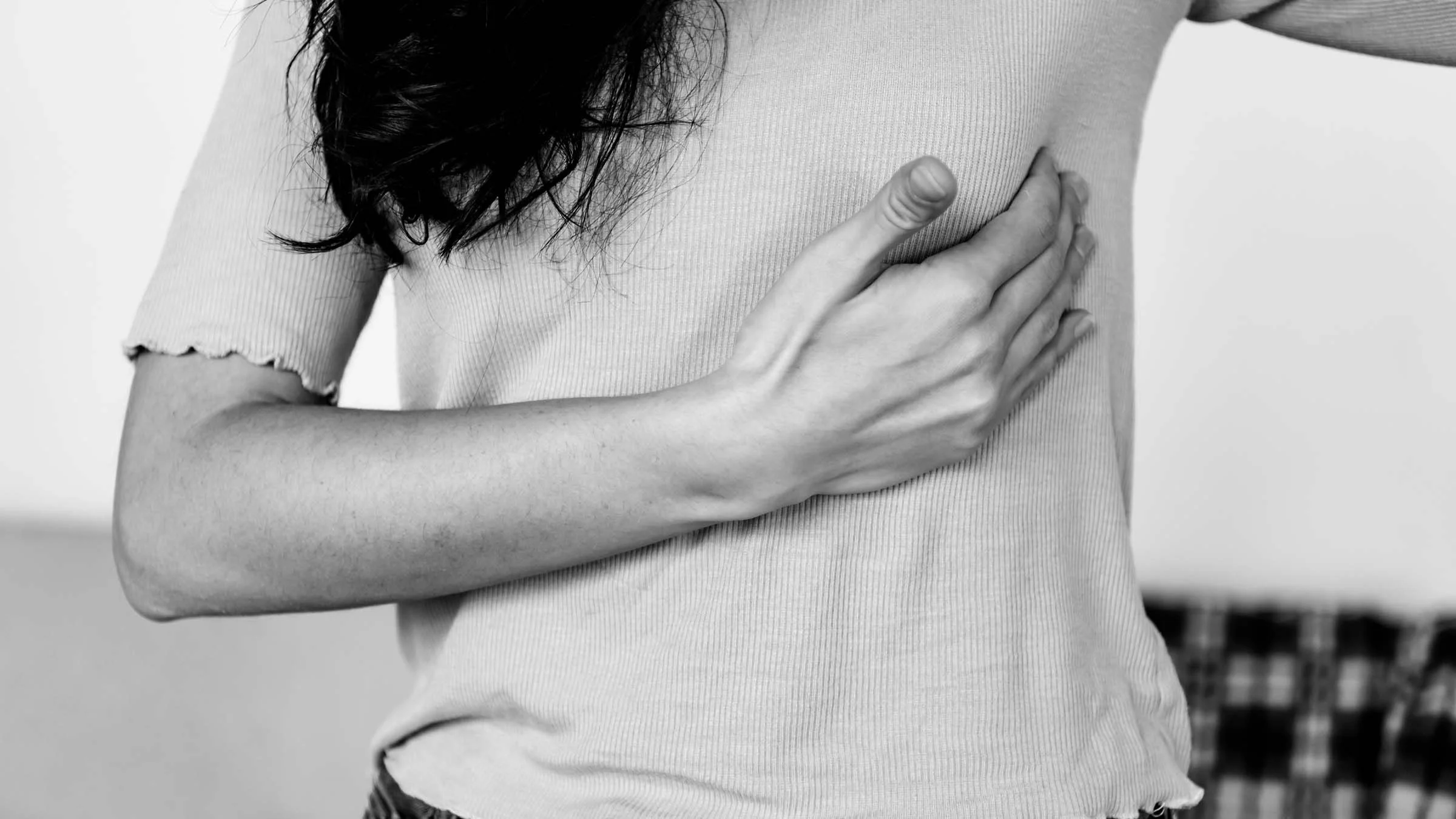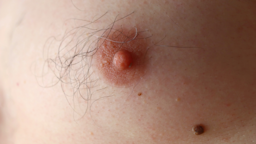Key takeaways:
Nipple pain can happen for a lot of reasons, from sex to infections and allergies. Hormonal changes can also cause nipple pain, like those from periods, pregnancy, and nursing.
Rarely, nipple pain can be a sign of a more serious issue, like breast cancer. There are certain signs to look out for.
The best way to relieve nipple pain and tenderness depends on the cause. Options can include over-the-counter pain relievers, cold compresses, or moisturizers and barrier creams.
If you aren’t sure why your nipples are sore, and the pain lasts longer than a week, it’s best to see a healthcare professional.
Having sore nipples can be painful and distracting. While sore nipples can happen for many reasons, most causes are harmless.
Nipple pain or soreness is often related to hormonal changes during your periods or pregnancy. It can also come from friction caused by clothing or sex. Sometimes, sore nipples are from an allergy or other irritation. Rarely, it can be due to a more serious concern, like a form of breast cancer. It’s always a good idea to see a healthcare professional about ongoing nipple pain.
Here are 10 causes of sore nipples — and what you can do to find relief.
Search and compare options
1. Clothes and friction
A common cause of sore nipples or nipple pain is chafing from clothing or bras. Jogging or other exercises can lead to repetitive friction injuries. You may notice your nipples are red, painful, and sometimes even bleed.
What to do: To help, you can try wearing tighter sports bras to avoid chafing. You can also apply a barrier ointment, like Vaseline or Aquaphor, or use a nipple cover or other protective layer.
2. Injury
Injury to your nipples, such as during sexual activity, can cause pain and sensitivity. You may notice soreness after friction or nipple stimulation, but it’ll usually go away within a few days.
What to do: Protect your nipples from further friction or injury to help them heal.
3. Skin conditions
Certain skin conditions, such as dry skin or eczema, can cause sore nipples. These conditions often come with itching and irritation. You may see dry, scaly, or itchy patches on or around your nipples.
What to do: You may be able to use emollient or barrier creams to treat dry and itchy skin around your nipples. If the condition is more severe, a healthcare professional may recommend a short-term topical steroid.
How to pick a skin barrier: If you have sore nipples, applying a protective barrier like Aquaphor or Vaseline may help. Here’s how to choose the best one for you.
Itchy nipples? Learn common causes of itchy nipples and what you can do to get relief.
Period pain? Your menstrual period can lead to sore nipples, cramps, and other uncomfortable symptoms. These over-the-counter (OTC) medications may bring some relief.
Make sure to visit a healthcare professional if you notice signs of a skin infection, like reddening of your skin or nipples, drainage, or fever.
4. Allergies
Irritants or allergens — such as a new soap or laundry detergent — can affect your nipples. You can experience an allergic skin rash when you come into contact with a new product or jewelry.
What to do: The first step is to avoid the allergen, or the thing causing the irritation. And do your best to avoid scratching, which can worsen the irritation and increase your risk of a skin infection. For mild allergic skin reactions, cold compresses can help calm inflamed skin and relieve itchiness. Moisturizers and barrier creams can help provide a protective barrier. You may also consider taking allergy medication, like an antihistamine.
Read more like this
Explore these related articles, suggested for readers like you.
If you aren’t sure what’s causing the reaction, or if it’s severe, see a dermatologist or healthcare professional. They can give the right diagnosis and treatment, which may include short-term use of a topical steroid.
5. Menstrual period
Hormonal changes related to your period — like increased estrogen levels — can also lead to sore nipples. Typically this causes both nipple and breast sensitivity right before your period.
What to do: Sore nipples and sensitive breasts will often improve with time. You may get some relief with over-the-counter (OTC) medications, like acetaminophen (Tylenol) or ibuprofen (Motrin). Wearing a supportive bra can also help.
6. Pregnancy
Being pregnant causes many hormonal changes that can lead to sore breasts and sensitive nipples. This typically improves over the course of your pregnancy.
What to do: Wearing a supportive bra, taking warm showers, and using cold compresses can help with nipple pain during pregnancy. Not all OTC pain relievers are safe during pregnancy. It’s best to check with your healthcare team first.
7. Nursing
Nursing can lead to painful nipples. When a baby nurses, the suction on your nipple can sometimes lead to painful cracking and bleeding over time. A clogged milk duct is another possible cause of nipple pain when nursing.
What to do: To help with nursing-related nipple pain, check your baby’s latch. A lactation consultant can help with positioning and check the baby for tongue-tie, which can make it difficult for your baby to get a good latch.
Skin-care products like nipple balms or creams may provide some relief. And consider wearing a comfortable, well-fitting bra. OTC medications, like acetaminophen or ibuprofen, may help relieve mild nipple pain.
To relieve a clogged milk duct, you can try simple home remedies, such as applying cold or warm compress or trying a gentle massage. If the lump doesn’t go away after a couple of days, contact a healthcare professional. Sometimes a clogged milk duct can lead to an infection.
8. Nipple infection
Certain infections — such as mastitis (a breast infection) or yeast infections — can cause nipple pain. These often happen while nursing, but they can happen at other times too.
Mastitis can cause a wedge-shaped area of redness, warmth, and pain. It can also cause a fever and body aches. A yeast infection on your nipple can cause sharp, burning nipple pain, along with cracking and bleeding. If you’re nursing, it’s possible to pass the infection back and forth between you and your baby. (Your baby could have oral thrush, which shows up as white patches in their mouth).
What to do: If you have signs of mastitis, it’s important to speak with a healthcare professional. Treatment often requires antibiotics. To treat a yeast infection, a healthcare professional may prescribe antifungal medication.
9. Breast cancer
While breast cancer doesn’t usually cause breast or nipple pain, it can. It’s important to know the warning signs. Some types of breast cancer can cause skin or nipple changes. This is usually more common with larger cancers or inflammatory breast cancer, which causes a quickly growing area of redness and tenderness.
What to do: It’s best to get checked out, especially if you have breast pain that doesn’t go away, skin changes like redness or dimpling, or nipple discharge.
10. Paget’s disease
Paget’s disease of the breast is when there’s redness, itching, and scaling of the nipple that’s associated with breast cancer.
What to do: If you have ongoing nipple changes — including pain or itching — be sure to talk with a healthcare professional. To confirm a diagnosis, they’ll do a physical exam and order tests like a mammogram or a biopsy.
When to see a healthcare professional for sore nipples
Most of the time, nipple pain isn’t a cause for concern. But you’ll want to talk with a healthcare professional about any ongoing nipple pain that doesn’t have a clear explanation or if you notice any other concerning symptoms. This is also a good time to review recommendations for breast cancer screening.
There are some symptoms that can mean it’s time to make an appointment with a healthcare professional sooner rather than later. These symptoms include:
A breast lump
Nipple pain that wakes you up at night
Nipple pain that lasts longer than a week
Skin changes along with pain, such as redness, swelling, or changes in skin color
Nipple discharge
Swollen lymph nodes in your armpit
Frequently asked questions
You may experience a burning or tingling sensation on or around your nipples from skin irritation, injury, an allergic reaction, or sunburn. Try to avoid scratching, as this can make the irritation and burning worse. If the burning persists and you aren’t sure of the cause, it’s best to see a healthcare professional.
The best way to relieve stinging nipples depends on the cause. Some general strategies that may relieve irritated or stinging nipples include applying a cool compress or using a moisturizing ointment.
You may experience a burning or tingling sensation on or around your nipples from skin irritation, injury, an allergic reaction, or sunburn. Try to avoid scratching, as this can make the irritation and burning worse. If the burning persists and you aren’t sure of the cause, it’s best to see a healthcare professional.
The best way to relieve stinging nipples depends on the cause. Some general strategies that may relieve irritated or stinging nipples include applying a cool compress or using a moisturizing ointment.
The bottom line
There are many possible causes of nipple pain, and most aren’t a cause for concern. A lot of everyday activities — like wearing a bra that doesn’t fit well or using a new detergent — can lead to sensitive or sore nipples. Routine hormonal changes, like your period, pregnancy, or nursing, can also lead to nipple pain. It’s always a good idea to get checked out if your nipple pain is ongoing or if you have other symptoms along with it.

Why trust our experts?



References
American Cancer Society. (2025). Breast cancer signs and symptoms.
Boakes, E., et al. (2018). Breast Infection: A review of diagnosis and management practices. European Journal of Breast Health.
International Lactation Consultant Association. (n.d.). Find a lactation consultant directory.
Kent, J., et al. (2015). Nipple pain in breastfeeding mothers: Incidence, causes and treatments. International Journal of Environmental Research and Public Health.
Sakorafas, G., et al. (2001). Paget’s disease of the breast. Cancer Treatment Review.

















